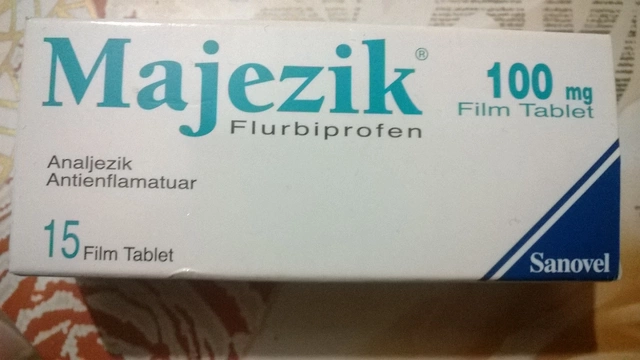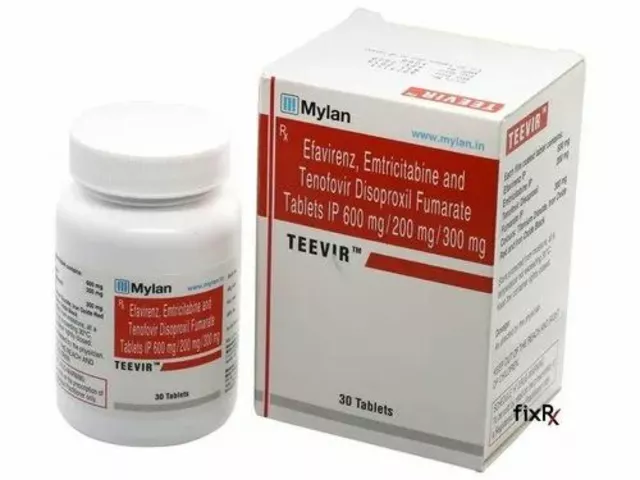Health alternatives aren’t just about swapping one pill for another.
They mean safer options, cost choices, and practical steps to feel better without guesswork. Want a quick way to evaluate alternatives? Ask: does it match your condition, have proven benefits, and fit your medical history?
Many people look for drug alternatives because of side effects, costs, or availability. For example, if a doctor prescribes Tamiflu, ask whether baloxavir or peramivir suit your situation. For fertility, options like Letrozole may be considered instead of Clomid. If your statin causes muscle pain, there are other statins or non-statin routes to lower cholesterol. These examples show why talking to a clinician matters — they can weigh risks, interactions, and monitoring needs.
Non-drug approaches often help alongside or instead of medications. Simple steps like improving sleep, changing diet, using nasal sprays for allergies, or physical therapy for joint pain can reduce dependence on medicines. For mental health, therapy, sleep hygiene, and routine exercise can boost or replace medication in some cases. Think of these as parts of a plan, not quick fixes.
Buying meds online? Use caution. Trust pharmacies that require a prescription, display clear contact info, and offer licensed pharmacist support. Watch for prices that are too low, no-prescription offers, or vague company details — those are red flags. Our site reviews several online pharmacies and lists safer buying tips so you can compare choices.
How to pick the right alternative:
1) Check evidence — look for clinical studies or official guidelines. 2) Match it to your health profile — age, kidney or liver issues, pregnancy, or other meds matter. 3) Consider monitoring — some drugs need blood tests or follow-up. 4) Think about cost and access — insurance coverage or local availability often decides what you can use consistently.
When to see a doctor now: sudden symptoms, high fever, chest pain, breathing trouble, severe side effects, or anything that worsens quickly. For medication switches, schedule a planned visit so you can stop, start, or monitor safely.
Quick safety checklist before trying an alternative:
Confirm diagnosis, list current medications and supplements, check allergies, verify pharmacy licensing, and ask what monitoring is required.
Want targeted options? We have specific guides on alternatives for flu, thyroid, fertility, allergies, depression, cholesterol, and more. Use those pages to compare real pros and cons and find what applies to you. Making a change can help, but smart choices and a little medical guidance go a long way.
Also, track how a new treatment affects you. Keep a simple journal: start date, dose, symptoms that improve or worsen, and any side effects. Bring that note to follow-up visits — doctors find it useful. If cost is an issue, ask about generics, discount programs, or therapeutic alternatives that cost less. Some pharmacists can suggest cheaper equivalents that work similarly. Finally, never stop or cut doses suddenly without talking to the prescriber — some medicines need tapering.
Have questions? Use our tag list to find guides and compare options before you decide. Your health, your choice — choose wisely. Always.

Discovering New Health Destinations: 8 Alternatives to Healthline in 2025
In the ever-expanding online health resource landscape, it's essential to explore various platforms that offer medical and lifestyle insights. While Healthline is a popular choice, several alternatives provide unique features to cater to diverse health needs. From personalized tools to community engagement, these websites present valuable options for anyone seeking reliable health information. Each platform has its own strengths and weaknesses, guiding users to choose the most suitable resource for their lifestyle and medical interests.
Health ResourcesLatest Posts
Tags
- online pharmacy
- medication safety
- generic drugs
- medication
- dietary supplement
- side effects
- online pharmacy UK
- drug interactions
- mental health
- impact
- online pharmacies
- statin side effects
- dosage
- generic vs brand
- pediatric antibiotics
- antibiotic side effects
- skin health
- health
- pain relief
- dietary supplements




